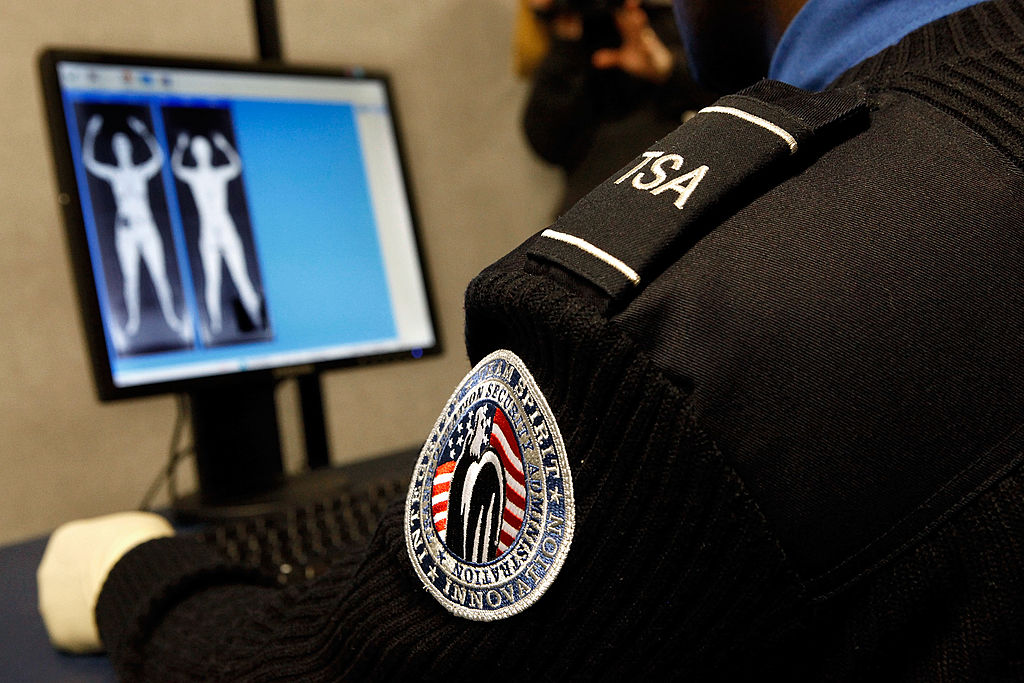
The Transportation Security Administration (TSA) has apologized to a Native American traveler who says she faced a ‘humiliating’ encounter with an employee during a security pat-down.
While traveling through Minneapolis-St. Paul International Airport, Tara Houska, an indigenous rights activist and lawyer, said on Twitter last week that a TSA agent pulled her braids behind her shoulders, laughed and said ‘giddyup!’ before snapping her braids like reins.
“This kind of racism is not something that is new to our people,” Houska tells TIME. “This is just one small incident but it’s reflective of a larger culture.”
The Minneapolis-St.Paul International Airport responded to Houska on Twitter, saying they were “sorry to hear about (her) experience” and said they would forward Houska’s tweet to TSA.
The TSA said in a statement emailed to TIME that it was aware of a traveler’s allegations “about her screening experience at Minneapolis-St. Paul International Airport Monday morning.” TSA Federal Security Director for Minnesota Cliff Van Leuven “spoke with the traveler,” the statement said, noting that, “He apologized for actions and a comment that were insensitive and made by a TSA officer to the traveler during the screening experience.”
The TSA also shared an email from Van Leuven that appeared to be sent to employees in which he addressed the incident.
It read: “In the news last night and today you’ve likely seen – or heard – of a TSA Officer at MSP who was insensitive in screening the long braided hair of a Native American passenger Monday morning. Did it actually happen? Yes. Exactly as described? Yes.”
“Treating the public we are sworn to serve and protect with dignity and respect is our calling – every passenger, every day,” Van Leuven said. “We’ll learn from this…”
Houska told TIME that she was less concerned about how TSA treated the individual employee who behaved insensitively and more interested in making sure TSA reminded all of their employees that such behavior is “unacceptable” and sending a “reminder about cultural sensitivity when it comes to native people.”
The incident is “representative of an underlying ignorance about a lot of different cultures,” Houska said. When that ignorance is taken to an extreme, it can lead to “much worse and sometimes deadly situations,” Houska said. “It’s all related.”
Houska acknowledged TSA’s apology on Jan. 16 and added: “I really, really hope this doesn’t happen to anyone else moving forward.” She said the agency’s response and call to “learn from this” was a “professional” response.
“My braids are not reins, I should be treated with dignity, as should everyone else,” Houska said.
The TSA and airport security procedures have been criticized regularly for discrimination.
More Must-Reads from TIME
- Where Trump 2.0 Will Differ From 1.0
- How Elon Musk Became a Kingmaker
- The Power—And Limits—of Peer Support
- The 100 Must-Read Books of 2024
- Column: If Optimism Feels Ridiculous Now, Try Hope
- The Future of Climate Action Is Trade Policy
- FX’s Say Nothing Is the Must-Watch Political Thriller of 2024
- Merle Bombardieri Is Helping People Make the Baby Decision
Write to Sanya Mansoor at sanya.mansoor@time.com